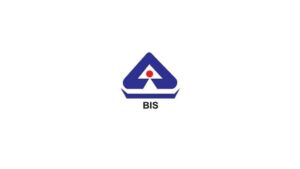Table of Contents
INTRODUCTION
BIS stands for The Bureau of Indian Standards is the national Standards Body of India working under the aegis of the Ministry of Consumer Affairs, Food & Public Distribution, Government of India. It was established by the Bureau of Indian Standards Act, 1986, which was enacted on December 23, 1986.
Bureau of Indian Standards
The Bureau of Indian Standards is a national standards body promoting and regulating standards of products and goods in India. The Bureau of Indian Standards has set up eight Central, four regional, and three branch laboratories in India to test the samples of the products during the preliminary and surveillance operations.
The BIS certification for products is encouraged by the government for the following purposes-
- It provides a safeguard for public health
- It provides quality assurance
- It protects the consumer from hazardous products
- It promotes consumer confidence

Benefits of BIS Certification
- Ensures quality standards as Bureau of Indian Standards registration products are bound to follow a certain standard while manufacturing the goods
- Gives authenticity to BIS-certified products as they deliver high-quality performance and reliability
- BIS-certified products minimize environmental risks as BIS has prohibited the usage of certain chemicals and materials under its prescribed norms
- BIS registration is granted after testing the samples of the products in BIS set-up laboratories, ensuring quality inspection and high-quality products
There are 380 products in total that require compulsory Bureau of Indian Standards certification.
Click here for the list
Types of BIS Registration Schemes
ISI Mark Scheme Registration for Domestic Manufacturers
ECO Mark Scheme Registration
Foreign Manufacturers Certification Scheme (FMCS)
ISI Mark Scheme Registration for Domestic Manufacturers
The manufacturers of products that come under the compulsory Bureau of Indian Standards certification (Scheme-I) have to register through the normal procedure. However, certain products that require compulsory certification are also included in the list of products that come under simplified registration.
ECO Mark Scheme Registration
The Bureau of Indian Standards also provides certification to environmentally friendly products under the ECO mark scheme. Under this scheme, BIS categorizes all environmental products that conform to the basic requirements under Indian Standards. The BIS grants an ‘ECO’ logo along with an ‘ISI Mark’ for the products. The logo and mark indicate that the product meets certain environmental criteria and the relevant Indian Standards and quality requirements
Foreign Manufacturers Certification Scheme (FMCS)
It grants the specially designed ISI mark for overseas applicants or foreign manufacturers under the Foreign Manufacturers Certification Scheme (FMCS) within six months. They can obtain BIS certification for products under the Compulsory Registration Scheme (CRS) and compulsory BIS certification scheme (Scheme-I).
Registration Procedure
- The manufacturers submit the BIS registration application
- The BIS officer will visit the factory for a preliminary inspection
- After the inspection, the product samples will be tested
- After completion of the evaluation, the BIS officer will derive the final result
After the inspection process, the inspecting officer will conduct the surveillance process to conduct a complete survey of the factory. The following steps are involved in the surveillance process:
- The inspecting authority will visit the factory to testify about the test results
- The inspecting officer will send the samples to the independent labs
- The test report will give feedback or brief the complaint on the investigation
- The performance review report will be prepared
- Once the report is reviewed, the BIS license is granted
Documents Required
- Name and address proof of office and factory
- Document showing the establishment of the manufacturing unit such as Incorporation Certificate or Registration Certificate Memorandum of Association, etc.
- MSME/SSI certificate, if applicable
- Manufacturing process flow covering all processes of manufacture (from raw material to finished product stage)
- Manufacturing machinery list along with the machinery details
- Details of outsourcing of manufacturing operation, if applicable
- A detailed list of testing facilities and testing equipment list
- Copies of valid calibration certificates of testing equipment
- Third-party laboratory test report as per Indian Standards, if applicable
- Layout plan of the factory premises and location plan of the factory
- In-house or independent test report, if applicable
- In case the application is signed by the authorized signatory, the authorization letter from the CEO in the authorized signatory’s name
- In the case of a foreign manufacturer or overseas applicant, the nomination details of the Indian agent and the nomination form
